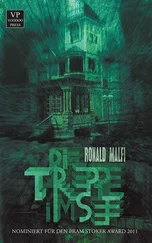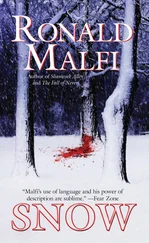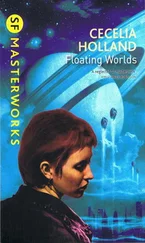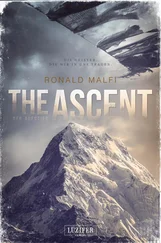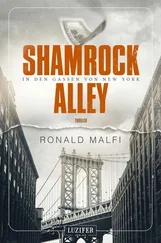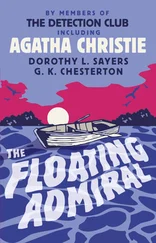“You’re chasing this thing, hoping that if you fix it, you’ll absolve yourself of your guilt over Kyle.”
I felt my whole body flinch.
“You can’t undo what happened to our brother,”
Adam said flatly. “No matter how many imaginary murders you solve, no matter how many books you write about it, you’re still powerless to change what happened to him.” He paused. “And now you’re letting your marriage fall apart in order to fix your own mistakes of the past. You’re caught in a cycle here. Can’t you see that?”
I couldn’t answer.
“Travis?” he said, and his voice was impossibly distant now. He was talking from the moon.
I turned away from the picture, a noxious soup broiling in my stomach.
Adam stood, stacking the photos into a neat pile. Then he glanced at the wall clock, biting his lip again. “Go home. Think about what I’ve said. If any of it makes sense after you sober up, maybe you should give Jodie a call in the morning. All right?”
Numbly, I nodded. I stood and collected the photos from the table. As I followed Adam to the front door, my boots squelching muddy tracks in the hallway, I curled the photos into a tube. My palms were sweating.
“Go,” he said, opening the door. “Get some sleep.”
I stepped into the dark, my shadow stretching before me in the panel of soft rectangular light that spilled out from the open doorway, and hoofed down the icy driveway. The sound of Adam’s door closing echoed across the cul-de-sac.
I was shaking.
It was a mistake to move here. We should have stayed in North London. My relationship with Adam has always been better by telephone.
Crossing the cul-de-sac, I pulled my coat tighter about my body and strode with my head down against the biting wind. Off to my right, someone flashed a pair of headlights, temporarily paralyzing me in the middle of the street like a deer. I could make out the bracketed shape of an old two-tone pickup idling silently against the curb. I could smell the fetid exhaust pumping from the tailpipe as I approached the driver’s side of the vehicle.
The driver rolled the window down.
Sitting behind the wheel was David Dentman.
CHAPTER TWENTY-SIX
Get in the truck,” Dentman muttered offhandedly. The only light inside the cab was from the burning ember of a cigarette.
“What are you doing here?” There was an icy finger tracing the contours of my spine.
“Looking for you.” He leaned across the passenger seat and opened the passenger door. The interior dome light came on, sending inky pools of shadow running down his face.
“No. We can talk out here.”
“Christ, Glasgow, don’t be such a pussy. I’m not gonna hurt you. Get in the truck.” He sounded disgusted with the whole ordeal.
It was a stupid damn thing—one of those stupid damn things that cause audiences in movie theaters to shout less than flattering names at the ignorant but well-meaning protagonist—but I had my reasons. So I walked around the front of David’s pickup, feeling the heat of the headlamps wash over me as I passed, and got into the passenger seat. All too aware of the photographs I was carrying, I held my breath; rolled into a cone, they couldn’t have been more conspicuous if they’d been adorned with Christmas lights.
The vehicle’s interior smelled of turpentine and tobacco and whiskey and sweat. This close, I could smell Dentman, too, and it was a strong, masculine, canine smell—almost feral.
Dentman dropped the truck into gear. The engine roared and caused the entire chassis to shudder. It sounded like there was an army tank under the hood.
“I thought you just wanted to talk,” I said.
The pickup’s headlights cleaved into the darkness as we pulled out into the street and headed for the intersection. Watching as the speedometer climbed well past fifty, fifty-five, sixty, I reached for the seat belt but found none. Yeah, this is smart.
Dentman slouched in the driver’s seat, huge and filling it completely, both his big, meaty paws gripping the steering wheel, his head tilted slightly down while watching the blackened, narrow roadway from beneath the cliff of his Neanderthal brow.
“This is a residential neighborhood,” I reminded him.
His profile affected the faintest smirk.
Wind whipped in through the open driver’s side window, freezing the air and emitting an aboriginal hum as it funneled through the tube of photographs I held. I tried to will the photos away into nonexistence by mere thought. Please, please, please.
Dentman cast an empty stare at the photos and, presumably annoyed by the sound, rolled up his window. “You stink like a distillery,” he commented after a moment, actually sniffing the air like a bloodhound.
The pickup bucked along the road, the engine furious under the hood. I counted the seconds until the doors came loose on their hinges.
“What do you want?” I said.
“Open the glove compartment.”
“No, thanks. I’m fine.”
“Open it.”
Hesitantly, I opened the glove compartment. The door dropped like a mouth, and a little orange light spilled out onto my lap. There was only one item inside, and I had to blink several times to convince myself that it was actually what I knew it to be. “I take it you don’t want an autograph,” I said, staring at the paperback copy of The Ocean Serene.
“I highlighted my favorite paragraphs,” Dentman said.
“Is that right?” Heavy with sarcasm.
I opened the book and flipped through the pages. What moonlight there was allowed me to see the highlighted portions of the text. I stopped on one of the pages and read it. Then I closed the book, pushing it back inside the open glove compartment, and stared at Dentman’s sharp profile, outlined in phosphorescent moonlight. “I’m flattered you’re such an avid fan, but where the hell are we going?”
“Tell me something,” Dentman said, his tone almost conversational as we barreled through the streets. “Whose life is that book about?”
“Huh?”
“That’s what you do, isn’t it? Steal people’s lives? Cheapen their tragedies for the sake of entertainment? For the sake of your bank account?”
“I don’t know what the hell you’re talking about.”
“What is it you think about me? What is it you think about my family?”
“You’ve lost your mind,” I told him.
“Reach under your seat.”
“No. Enough bullshit. What’s this all about?”
“You tell me.”
“Look, I don’t know what you’re getting at. If this is about the box I brought by your house, I thought we’d already—”
“Reach under your seat,” Dentman repeated with more than just a hint of irritation in his voice.
Reluctantly, I leaned forward and slid one hand beneath my seat. My breath was rattling in my throat. I patted around the stiff carpeting, not knowing what to expect, what I was searching for . . . and then the tips of my fingers touched something. I took it out and put it in my lap, blessedly covering the photographs with it. Looking at it, I felt something thick and wet roll over in the pit of my stomach, and I thought I would throw up. My hands were shaking, and I couldn’t keep my teeth from vibrating in my head. In my throat, my breath temporarily seized up. I prayed for unconsciousness.
On my lap was my missing writing notebook.
There were a million questions—a trillion questions—shooting through my brain, but my mouth, that traitorous cretin, would not formulate the words.
Dentman maneuvered the shuddering pickup straight down Main Street and past the depressed little shops of rural Westlake, now dark and closed. Only the shimmering pink neon lights of Tequila Mockingbird were visible, radiating with a dull sodium throb in the darkness. Ahead, through the windshield, the night was a tangible thing—a black velvet cloak draped over the valley.
Читать дальше


